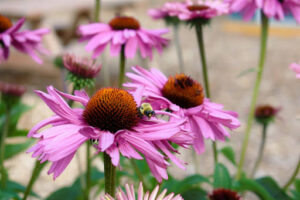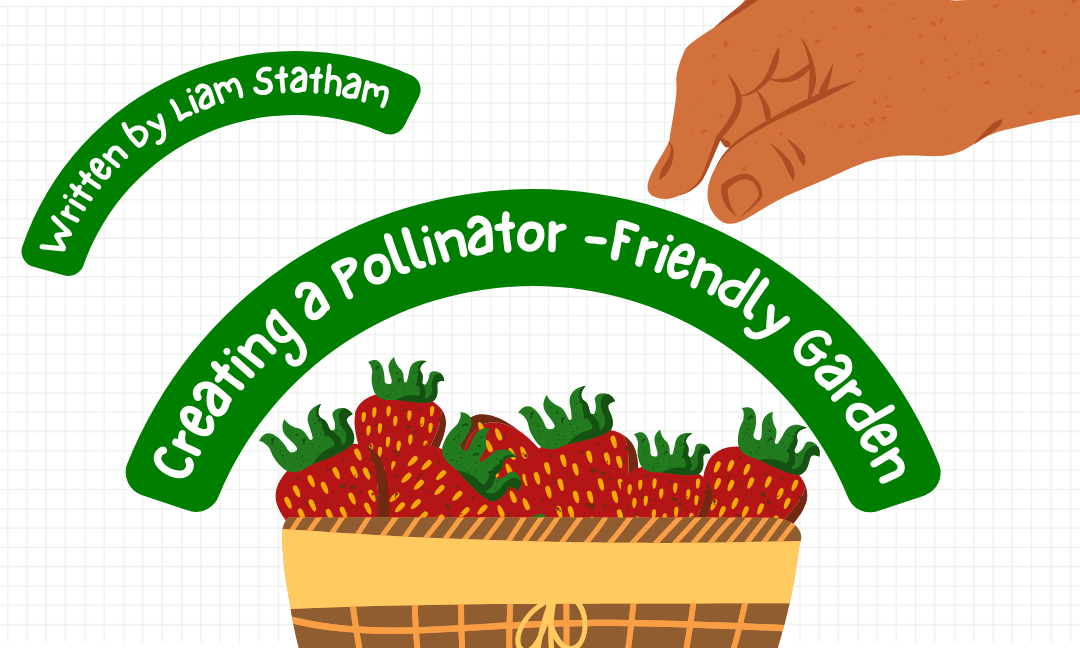Written by Liam Statham
Edited by Kiritika Rana
Designed by Kiritika Rana
Published by Kiritika Rana
Given the declining population of native bees, butterflies, and other insect pollinators over the last several decades, it is becoming more and more important to turn your garden into a sanctuary for them. Luckily, even one pollinator-friendly plant makes a difference! In this article, I’ll explain why pollinator-friendly gardens are important and how you can make one!

Why are Pollinator-Friendly Gardens Important?
Pollen is a crucial food source for many insects, so a lack of it could lead to starvation for these insects. Without insects, the birds, fish, and other animals who depend on them would also decline in population. A decline in these animals means that the entire local food web is affected. Additionally, 75% to 95% of all plants need pollinators, and pollinators are responsible for one out of every three bites of food we eat.
Ways You Can Make a Pollinator-Friendly Garden
1. Choose Plants That Support Pollinators (Native Plants)
By researching and selecting pollinator-friendly native plants to grow in your garden, you can bring in more pollinators! Native insects evolved alongside native plants so putting them alongside each other once again can be very beneficial. Planting non-native plants also runs the risk of wiping out native plant species, which can damage the ecosystem.
2. Choose a Variety of Plants
Pollinators need more than just flowers to thrive, they also require shelter for their younger populations. Plants with leaves and soft tissues along with ground cover plants can provide great shelter for many insects.
 3. Research What Specific Pollinators Want
3. Research What Specific Pollinators Want
Each insect has specific plants that attract them more than others. Butterflies, for example, are especially attracted to dill, fennel, milkweed, and zinnia. Bees, on the other hand, are attracted to lavender, coneflower, and asters. Planting lots of plants with a certain colour can also help the attraction of certain insects.
4. Reduce Use of Pesticides
Many chemical pesticides that are used to target one pest end up affecting many beneficial insects, like pollinators. Consider deterring pests in ways that won’t damage your plants or any beneficial insects.
Conclusion
In conclusion, creating a pollinator-friendly garden is a very important step in preserving the health of our ecosystems. By making use of simple strategies like those outlined in this article, you can create a safer place for pollinators.

